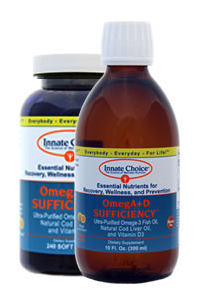 Omega 3 and Omega 6 are essential fatty acids that the body can not make on its own. Omega 3 is thought to have many health benefits, while omega 6 is known to cause inflammation.
Omega 3 and Omega 6 are essential fatty acids that the body can not make on its own. Omega 3 is thought to have many health benefits, while omega 6 is known to cause inflammation.
It is very important for your health to have the right balance of these acids. People who are deficient in omega 3 may notice dry patches or bumps on their skin, brittle hair, dandruff, or nails that break easily. Inadequate levels can also negatively affect concentration, mood, energy, and sleep.
While it is possible to achieve this through diet, many professionals recommend getting a good quality supplement. Let’s take a look at the dietary impact of fatty acids and the benefits of getting the balance right to discover if a supplement could be a good choice for you!
Historically
Research suggests that our hunter-gatherer ancestors consumed around a 1:1 ratio of omega-6 and omega-3 fats. It also indicates that these hunter-gatherers did not struggle with many of the inflammatory diseases that our culture does (heart disease, cancer, diabetes, etc.).
Modern culture’s push for convenience foods, as well as the food industry’s attempt to lower cost has had a significant impact on these ratios. Today, the average ratio of omega 6 and omega 3 is between 10:1 and 20:1, with some individuals as high as 25:1.
If you eat out or consume processed foods it is likely that you are exceeding the amount of omega 6 that your body can handle!
How Omega 3 & Omega 6 Compete in the Body
Since both omega 3 and omega 6 fatty acids compete for the same conversion enzymes this ratio is extremely important. Enzymes used to process omega 3, will not be available to process the inflammatory omega 6.
Simply put, this means that a diet high in omega 3 and low in omega 6 will reduce inflammation. And since chronic inflammation plays a role in many major diseases it is very important to address.
Most of Us Would Benefit From Extra Support
While whole foods are generally the best way to get nutrition, a good quality omega 3 supplement will be beneficial for most people. It may be especially important to consider if you:
- Don’t eat fish.
- Eat in restaurants.
- Consume packaged foods.
- Have a chronic inflammatory condition (autoimmune, cardiovascular disease, etc.).
Finding a Quality Supplement
If you choose to supplement, it is important to do your research. Buying a product made with poor quality ingredients can expose you to toxic chemicals and cause more harm than good.
OmegA+D SUFFICIENCY by Innate Choice is one of my favorite pharmaceutical grade products. Each batch is tested by a third party to make sure it is pure, meets industry standards, and is free from oxidation. It provides the perfect ratio of omega-3 fatty acids (EPA, DPA, DHA), as well as naturally occurring vitamin D3 and vitamin A from Norwegian fish and cod liver oils.
Dosage
When using OmegA+D SUFFICIENCY the dose is based on the individual’s weight. Typically you would take 500 mg of EPA + DHA per 40 lb. of body weight. (This would mean that a 120 lb. person would take 1500 mg, and a 160 lb. person would take 2000 mg.)
Vegetarians and Vegans
An omega 3 supplement may be especially important for vegetarians and vegans. Research has found that they have lower levels of DHA in their system than omnivores. This is probably because they typically consume less in their diet, and plant-based sources are not converted as well in the body.
For this reason most people who don’t eat fish should consider adding a good quality omega 3 supplement. While there are many plant-based omega 3 options on the market, the best plant-based choice is a microalgae supplement. The algae is rich in DHA and is easily converted in the body.
As always I am here to support you in your health journey! Let me know if you are interested in ordering a supplement or simply want to explore this further.
Dr. Jamie


